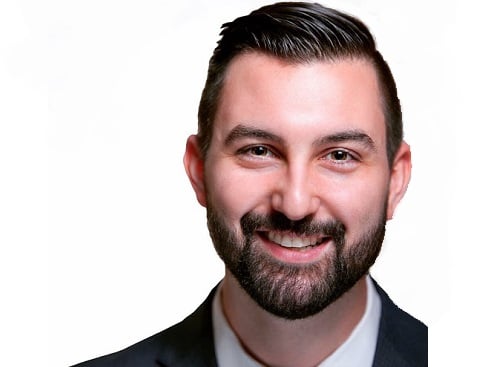There is life after brokering after all

Benjamin Sammut (pictured) spent six years as a mortgage broker, but since June he has been helping raise foreign capital in the mortgage investment corporation space.
Now a senior sales manager and foreign capital specialist for Ebury, Sammut identifies which international currencies are easiest to absorb into the Canadian marketplace and helps create hedging strategies so that rates hold for a number of years against currency fluctuations.
“The limiting factor if you go outside Canada is currency fluctuations,” said the former Mortgage Architects broker. “You make a 10% return but the dollar moves 10% and you lose your return. It’s difficult to find platforms that raise consistent capitals overseas and across the border. I work on long-term hedging strategies so that I can hold rates for seven years for investors so they know what their dollar is coming in and going out of Canada. They’re essentially dollars for dollars, regardless of currency fluctuation.”
As any broker can attest, B-20 has prohibited many borrowers from accessing A money, resulting in a surge of business for alternative lenders.
“We have such a market for B funds in Canada, and with the regulations we’ve seen through B-20, there’s going to be more and more demand for alternative funds because fewer people qualify for A money,” said Sammut. “That means MICs will lend more and more, and when they do they’ll need funding from somewhere.”
Canada also happens to be venerated internationally for its stability. Sammut says that, irrespective of headlines warning that real estate values are declining, investing in Canadian mortgages is relatively low-risk.
“In conversations we’ve had with international investors, our housing market is far safer and more regulated than the American market, and household indebtedness here isn’t any larger than other developed nations,” he said. “Investing overseas is riskier and people are already making investments without hedging exchange rates, so all we’re doing is levelling exchange rates to take away one more level of risk.”
Typically, international investors hail from the Middle East and United States. Sammut also deals with larger institutional and accredited investors.
“We normally only see American investors afraid of their own economy who flee rather than move towards opportunity, but accredited investors and institutional funds look to diversify. A lot are mandated to have funds outside of their countries because it’s safe to diversify, and the Canadian mortgage space is normally highest in returns and it’s safe, even with downward real estate prices. Default rates in Canada are among the lowest in the world. Indebted Canadians still pay their bills.”



